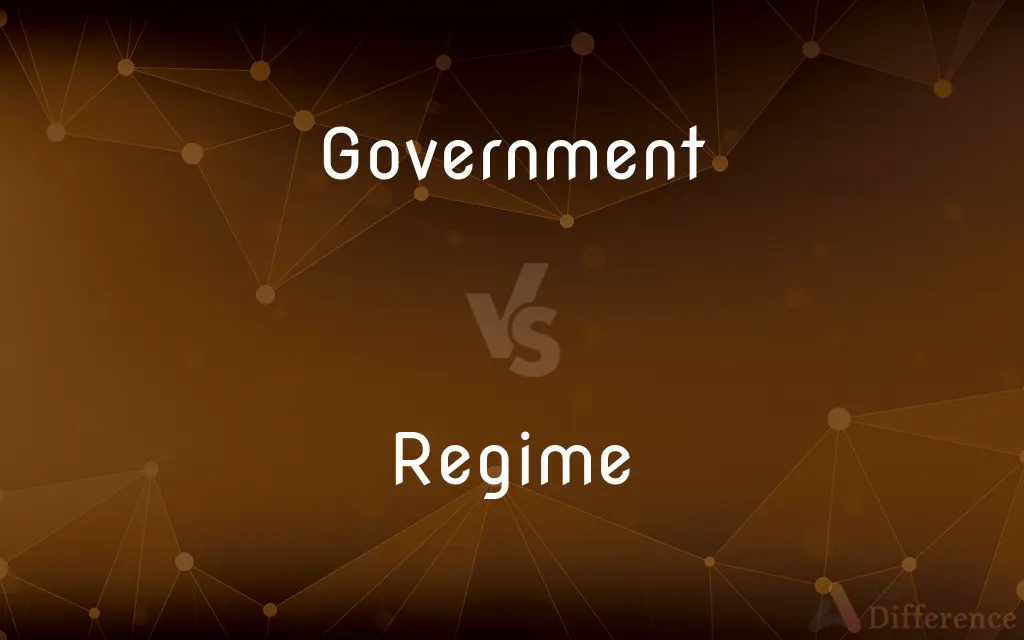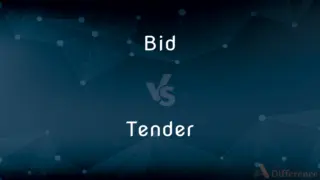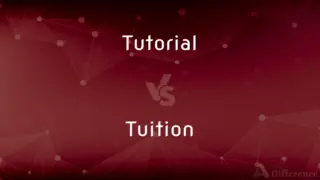Government vs. Regime — What's the Difference?
By Tayyaba Rehman & Fiza Rafique — Updated on March 11, 2024
Government typically refers to the established system of rule and administration in a country, while regime often connotes a government, especially an authoritarian one, marked by its policies and leadership style.

Difference Between Government and Regime
Table of Contents
ADVERTISEMENT
Key Differences
Government is a broad term that encompasses the structure and institutions through which a country or organization is managed and led. It includes elected officials, civil servants, and the legal framework within which they operate, aiming to provide order, services, and governance to the populace. On the other hand, the term regime is often used to describe a particular government's rule, especially focusing on its character, policies, and ideology, and it sometimes carries a negative connotation, particularly when referring to authoritarian or oppressive governments.
While the concept of government is neutral and necessary for the functioning of any society, the term regime tends to highlight the manner and style of governance, particularly emphasizing the ideologies and methodologies of the ruling party or leader. For instance, a democratic government operates with the participation of the people, often through voting and representation, whereas an authoritarian regime is characterized by limited political pluralism, lack of democratic processes, and central control.
The use of regime often implies a critical stance, suggesting a period of governance under a specific leader or party that is notable for its policies or approach, which may be contentious or controversial. For example, referring to a "military regime" or a "totalitarian regime" highlights the nature of governance rather than just the structure or institution of government itself.
In contrast to the sometimes-pejorative use of regime, government is a more neutral term that can apply to the ruling body in any type of political system, from democracies to dictatorships. It denotes the organized way in which a state is run, regardless of the specific characteristics of the leadership or their policies.
The distinction between government and regime becomes particularly important in political discourse, where the choice of term can reflect one's view on the legitimacy or nature of the ruling power. While all regimes are forms of government, not all governments are described as regimes, especially those seen as legitimate, stable, and democratic by the speaker or writer.
ADVERTISEMENT
Comparison Chart
Connotation
Neutral, refers to the system of rule
Often negative, focusing on leadership style and policies
Scope
Broad, includes all types of political systems
More specific, often highlighting authoritarian aspects
Focus
Structure and institutions of rule
Character and ideology of the ruling power
Usage
Neutral description of a state's ruling body
Can imply criticism or highlight authoritarian control
Association
Can be democratic, authoritarian, etc.
Often associated with oppressive or authoritarian rule
Compare with Definitions
Government
The system by which a community or nation is governed.
She studies the different forms of government in her political science class.
Regime
The period during which a particular government or ruling system is in power.
The regime change brought about significant policy shifts.
Government
The group of people with the authority to govern a country or state.
The government is planning to invest more in renewable energy sources.
Regime
The conditions under which a scientific or industrial process occurs.
The experiment was conducted under a controlled regime of temperature and pressure.
Government
The action or manner of controlling or regulating a state, organization, or people.
Effective government is crucial for economic stability.
Regime
A system or planned way of doing things, especially one imposed from above.
The new training regime at the gym is quite rigorous.
Government
The period during which a particular administration or system is in office.
The previous government had a different approach to education.
Regime
A government, especially an authoritarian one.
The regime's strict policies have sparked international concern.
Government
The governing body of a nation, state, or community.
The government introduced new healthcare policies.
Regime
A manner or system of governance or rule.
The military regime has been in power for over a decade.
Government
A government is the system or group of people governing an organized community, generally a state. In the case of its broad associative definition, government normally consists of legislature, executive, and judiciary.
Regime
In politics, a regime (also known as "régime", from the original French spelling) is the form of government or the set of rules, cultural or social norms, etc. that regulate the operation of a government or institution and its interactions with society.
Government
The group of people with the authority to govern a country or state; a particular ministry in office
The government's economic record
Successive Labour governments
Regime
A government, especially an authoritarian one
Ideological opponents of the regime
Government
The relation between a governed and a governing word.
Regime
A system or ordered way of doing things
Detention centres with a very tough physical regime
A tax regime
Government
The act or process of governing, especially the control and administration of public policy in a political unit.
Regime
A government, especially an oppressive or undemocratic one
A fascist regime.
Government
The office, function, or authority of a governing individual or body.
Regime
A usually heavy-handed administration or group in charge of an organization
Raises were canceled under the new regime.
Government
Exercise of authority in a political unit; rule.
Regime
A way of organizing or managing something; a system
An admissions regime at a college.
Government
The agency or apparatus through which a governing individual or body functions and exercises authority.
Regime
A regulated system of diet, exercise, or medical treatment; a regimen.
Government
The ruling political party or coalition of political parties in a parliamentary system.
Regime
The period during which a particular administration or system prevails.
Government
The cabinet in a parliamentary system.
Regime
A prevailing pattern of water flow, as of a river.
Government
The persons who make up a governing body.
Regime
Mode of rule or management.
A prison regime
Government
A system or policy by which a political unit is governed.
Regime
A form of government, or the government in power.
A totalitarian regime
Government
Administration or management of an organization, business, or institution.
Regime
A period of rule.
Government
Political science.
Regime
A regulated system; a regimen.
A fitness regime
Heaven will eliminate the tyrannical regimes.
Government
(Grammar) The influence of a word over the morphological inflection of another word in a phrase or sentence.
Regime
A division of a Mafia crime family, led by a caporegime.
Government
The body with the power to make and/or enforce laws to control a country, land area, people or organization.
British government has historically centred exclusively on London.
Regime
(hydrology) A set of characteristics.
A typical annual water level regime would include a gradual summer drawdown beginning in early May.
Government
The relationship between a word and its dependents.
Regime
Mode or system of rule or management; character of government, or of the prevailing social system.
I dream . . . of the new régime which is to come.
Government
The state and its administration viewed as the ruling political power.
If the citizens must follow the law, then the government must follow the constitution.
Regime
The condition of a river with respect to the rate of its flow, as measured by the volume of water passing different cross sections in a given time, uniform régime being the condition when the flow is equal and uniform at all the cross sections.
Government
(uncountable) The management or control of a system.
Regime
The organization that is the governing authority of a political unit;
The government reduced taxes
The matter was referred to higher authorities
Government
The tenure of a chief of state.
Regime
(medicine) a systematic plan for therapy (often including diet)
Government
The act of governing; the exercise of authority; the administration of laws; control; direction; regulation; as, civil, church, or family government.
Government
The mode of governing; the system of polity in a state; the established form of law.
That free government which we have so dearly purchased, free commonwealth.
Government
The right or power of governing; authority.
I here resign my government to thee.
Government
The person or persons authorized to administer the laws; the ruling power; the administration.
When we, in England, speak of the government, we generally understand the ministers of the crown for the time being.
Government
The body politic governed by one authority; a state; as, the governments of Europe.
Government
Management of the limbs or body.
Government
The influence of a word in regard to construction, requiring that another word should be in a particular case.
Government
The organization that is the governing authority of a political unit;
The government reduced taxes
The matter was referred to higher authorities
Government
(government) the system or form by which a community or other political unit is governed;
Tyrannical government
Government
The act of governing; exercising authority;
Regulations for the governing of state prisons
He had considerable experience of government
Government
The study of government of states and other political units
Common Curiosities
How does international perception affect the use of government vs. regime?
International perception and relations can influence the choice of terms, with "regime" often used to denote governments seen as illegitimate or hostile by the speaker.
Can a democracy have a regime?
While the term regime can technically apply to any form of government, it's less commonly used to describe democratic governments due to its connotations with authoritarianism.
Why is the term regime often used negatively?
Regime often implies authoritarian characteristics, focusing on the methods and policies of governance that may be oppressive or undemocratic.
Can the term regime be used neutrally?
Yes, in some contexts, regime can simply refer to a system of governance without necessarily implying a negative judgment.
Is it possible for a government to transition into a regime?
A government can come to be viewed as a regime if it adopts authoritarian practices or if its leadership style becomes characterized by oppressive policies.
How do media and political discourse influence the use of these terms?
Media and political figures often choose terms strategically, with "government" used for legitimacy and neutrality, and "regime" to denote authoritarianism or critique.
Do all authoritarian governments qualify as regimes?
Most authoritarian governments can be described as regimes, especially if their rule is marked by strong control and limited political freedoms.
How do historical contexts influence the use of these terms?
Historical contexts can shape the perception and use of these terms, with certain governments or periods being retrospectively labeled as regimes based on their characteristics.
Can a regime be positive?
While less common, the term regime can be used in a neutral or even positive light, especially if the policies and leadership are viewed favorably within a specific context.
Can the term regime apply to non-political contexts?
Yes, regime can also refer to a systematic or regulated way of doing something, such as a diet or exercise regime, without political connotations.
Share Your Discovery

Previous Comparison
Bid vs. Tender
Next Comparison
Tutorial vs. TuitionAuthor Spotlight
Written by
Tayyaba RehmanTayyaba Rehman is a distinguished writer, currently serving as a primary contributor to askdifference.com. As a researcher in semantics and etymology, Tayyaba's passion for the complexity of languages and their distinctions has found a perfect home on the platform. Tayyaba delves into the intricacies of language, distinguishing between commonly confused words and phrases, thereby providing clarity for readers worldwide.
Co-written by
Fiza RafiqueFiza Rafique is a skilled content writer at AskDifference.com, where she meticulously refines and enhances written pieces. Drawing from her vast editorial expertise, Fiza ensures clarity, accuracy, and precision in every article. Passionate about language, she continually seeks to elevate the quality of content for readers worldwide.
















































